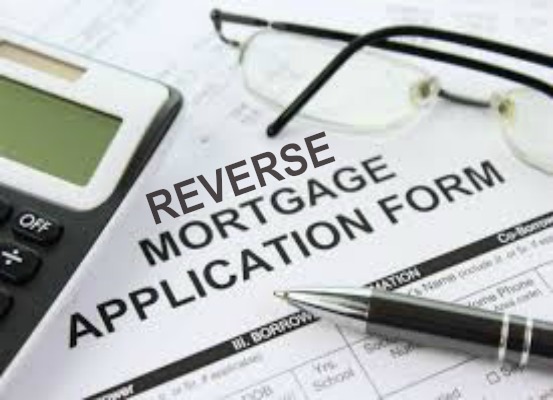A reverse mortgage is a unique loan. These are used to convert a percentage of home equity into available cash. Reverse mortgage solutions can assist senior homeowners 62 years of age or older, in providing tax-free cash flow. This is a means to financial independence and the ability to age longer in their home for the seniors. Reverse mortgage funds are commonly used for one or more of the following:
- Supplement a portion of daily living costs
- Debt elimination to reduce unaffordable monthly living costs
- Pay for home care costs
- Cover costs of home repairs and structural adaptations
- Keep funds available for emergencies
- Access to credit when other forms of credit are unavailable
- Work as an added option to a poorly performing financial portfolio
How do Reverse Mortgages Work?
Unlike a traditional home loan, in a reverse mortgage, the lender pays you. You are still legally required to pay your property taxes, homeowner’s insurance. Failure to do so can potentially result in the risk of foreclosure. The amount you receive in your reverse mortgage can vary based on how old you are. The older you are, the more home equity you can pull out. There are two kinds of reverse mortgages.
Fixed-rate reverse mortgages
This type of reverse mortgage consists of a one-time lump sum payment. A fixed-rate eliminates the uncertainty of a variable rate. This means that you’ll know the interest rate for the entire lifespan of the loan. Fixed-rate reverse mortgage solutions are mostly a good choice given that you know what your interest rate will be.
2. Adjustables have five payment options:
On the adjustable rate, borrowers can choose to take only a portion of their funds and then only accrue interest on the funds that they needed initially.
- Tenure: Set monthly payments so long as you or your eligible spouse remain in the home
- Term: Set monthly payments for a fixed period
- Line of credit: Unspecified payments when you need them until you’ve exhausted your funds
- Modified tenure: A line of credit and set monthly payments for as long as you or your eligible spouse live in the home
- Modified term: A line of credit and set monthly payments for a fixed period of your choosing
(Source: NerdWallet)
Qualifying for Reverse Mortgage Solutions
Age and residency is the fundamental qualifying requirement for reverse mortgage solutions. Also, borrowers go through a financial assessment with their lender. They must also acquire the FHA required HECM counseling certificate. ACCC is a Massachusetts and HUD-approved provider of the counseling and certificate.
Advantages & Disadvantages of Reverse Mortgage Solutions
The biggest advantages of reverse mortgages are that there are no creditworthiness or income requirements. Instead, you receive monthly payments, a lump sum payout, or a line of credit.
Money from a reverse mortgage can provide seniors with the financial security they need. It can also enable them to enjoy their retirement years while allowing them to remain in their home.
The potential downside to reverse mortgage solutions include the following:
- The fees cost thousands of dollars
- The loan reduces your equity in your home
- You could lose your home if you don’t pay property taxes and insurance
How People Use Reverse Mortgage Solutions:
Get cash out or debt assistance:
- No monthly payments are due for as long as the homeowner lives in the home
- Pays off existing mortgages on the home
- Credit score and income are not considered
- Proceeds are not taxable
Offers security:
- Allows the homeowner to stay in the home permanently
- With minimal requirements, the lender can never take your home
- No change to the title – lender receives only a mortgage lien
- The extra money may help you to maintain your independence and security
You have control:
- You decide how much equity you will use or leave to your heirs
- You control how much, or how little, the money you take out of your equity
- Leave the vast majority or very little of your equity
- Flexible terms for receiving payments are available
- Heirs inherit the home and keep the remaining equity after the balance of the reverse mortgage is paid off
Fair and safe way to access your equity:
- A government designed, highly regulated, and extensively disclosed mortgage program
- Independent counseling is always required before the loan process is complete
- The lender is repaid only what it is owed
- Can’t get “upside down”, so the heirs will never owe more than the home is worth.
- The interest rate is generally lower than traditional mortgages and home equity loans
- Conservative lending limits generally prevent you from using all of your home equity
Reverse Mortage Terms that are Useful:
If you are considering reverse mortgage solutions it is good to understand some terms associated with it. The jargon can easily mislead you. Here are some important terms that are useful.
- Acceleration clause -The part of the contract that says when a loan may be declared due and payable
- Adjustable-Rate – An interest rate that changes, based on changes in a published market-rate index
- Appraisal – An estimate of how much a house would sell for if it were sold; also called its market value
- Appreciation – An increase in a home’s value
- Area Agency on Aging (AAA) – A local or regional nonprofit organization that provides information on services and programs for older adults
- Cap – A limit on the amount an adjustable interest rate may go up or down during a specified period
- Closing – A meeting where documents are signed to “close the deal” on a mortgage; the time a mortgage begins
- CMT Rate – The Constant Maturity Treasury rate, used as an interest rate index in the HECM program
- Condemnation – A court action saying a property is unfit for use: also, the government taking private property to use for the public by the right of eminent domain
- Creditline – A credit account that lets a borrower decide when to take money out and also how much to take out; also known as a “line-of-credit” or “credit line.”
- Current Interest Rate – In the HECM program, the interest rate currently being charged on a loan, which equals one of the HUD-approved interest rate indices (1-month CMT, 1-year CMT, or 1-month LIBOR) plus a margin
- Deferred Payment Loans (DPLs) – Reverse mortgages that give you a lump sum of cash to repair or improve a home; usually offered by state or local governments
- Depreciation – A decrease in the value of a home
- Eminent Domain – The right of a government to take private property for public use; for example, taking private land to build a highway
- Expected Interest Rate – In the HECM program, the interest rate used to determine a borrower’s loan advance amounts; it equals either the 10-year CMT or the 10-year LIBOR rate plus a margin (see below)
- Fannie Mae – A private company that buys and sells mortgages; a government-sponsored business that is watched over by the federal government
- Federal Housing Administration (FHA) – The part of the U. S. Department of Housing and Urban Development (HUD) that insures HECM loans
- Federally Insured Reverse Mortgage – A reverse mortgage guaranteed by the federal government so you will always get what the loan promises; also, a Home Equity Conversion Mortgage (HECM)
- Fixed Monthly Loan Advances – payments of the same amount that are made to a borrower each month
- Home Equity – The value of a home, subtracting any money owed on it
- Home Equity Conversion – Turning home equity into cash without having to leave your home or make regular loan repayments
- Home Equity Conversion Mortgage (HECM) – The only reverse mortgage program insured by the Federal Housing Administration, a federal government agency
- Home Value Limit – In the HECM program, the largest home value that can be used to determine a borrower’s loan advances
- Initial Interest Rate – In the HECM program, the interest rate that is first charged on the loan beginning at closing; it equals one of the HUD-approved interest rate indices (1-month CMT, 1-year CMT, or 1-month LIBOR) plus a margin
- Leftover Equity – The sale price of the home minus the total amount owed on it and the cost of selling it; the amount the homeowner or heirs get when the house is sold.
- LIBOR – The London Interbank Offered Rate, used as an interest rate index in the HECM program
- Loan Advances – payments made to a borrower, or another party on behalf of a borrower
- Loan Balance – The amount owed, including principal and interest; capped in a reverse mortgage by the value of the home when the loan is repaid.
- Lump-Sum – A single loan advance at closing
- Margin – In the HECM program, the amount added to an interest rate index to determine the initial, current, and expected interest rates
- Maturity – When a loan must be repaid; when it becomes “due and payable”
- Model Specifications – rules recommended by AARP for analyzing and comparing reverse mortgages
- Mortgage – a legal document making a home available to a lender to repay a debt
- Non-Recourse Mortgage – A home loan in which the borrower generally cannot owe more than the home’s value at the time the loan is repaid
- Origination – The process of setting up a mortgage, including preparing documents
- Property Tax Deferral (PTD) – Reverse mortgages that pay annual property taxes; usually offered by state or local governments
- Proprietary Reverse Mortgage – A reverse mortgage product owned by a private company
- Reverse Mortgage – A home loan that gives cash advances to a homeowner, requires no repayment until a future time and is capped by the value of the home when the loan is repaid
- Right of Recission – A borrower’s right to cancel a home loan within three business days of the closing
- Servicing – Administering a loan after closing, such as maintaining loan records and sending statements
- Supplemental Security Income (SSI) – A federal monthly income program for low-income persons who are aged 65+, blind, or disabled
- Tenure Advances – Fixed monthly loan advances for as long as a borrower lives in a home
- Term Advances – Fixed monthly loan advances for a specific period
- Total Annual Loan Cost (TALC) Rate – The projected annual average cost of a reverse mortgage including all itemized costs
If you are seeking assistance with reverse mortgage solutions speak with a housing counselor at ACCC today. Call 800-769-3571. If you are struggling with debt, sign up for a free credit counseling session today.







